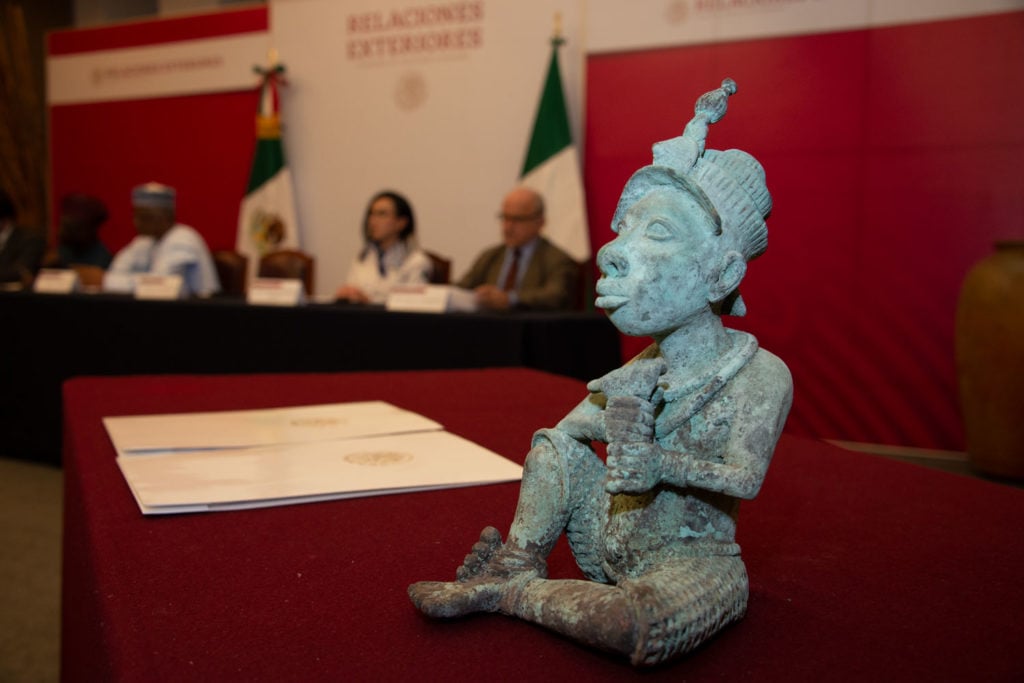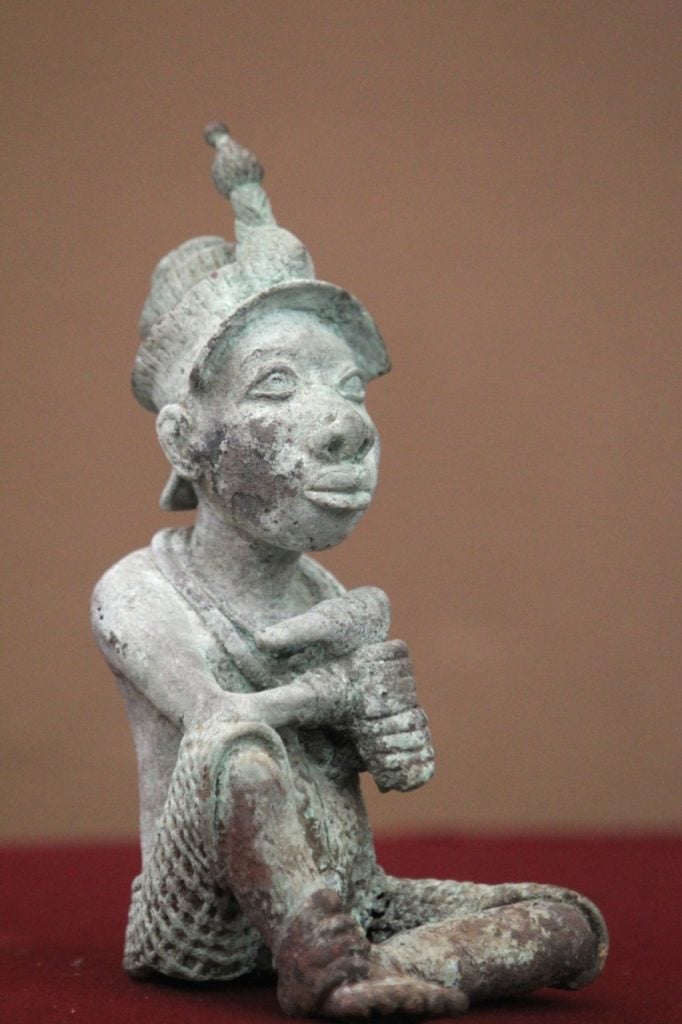Law & Politics
Mexico Just Repatriated a Rare Yoruba Sculpture to Nigeria. Experts Say It Might Actually Be a Cheap Knockoff
African art experts have doubts about the authenticity of the sculpture.

African art experts have doubts about the authenticity of the sculpture.

Taylor Dafoe

The government of Mexico repatriated a rare bronze sculpture to Nigeria last week after it had been illegally smuggled out of Africa. But now experts say the sculpture, thought to be a 1,500-year-old relic of the Yoruba people, was only a cheap knockoff.
“I confirm that object is a fake, and of the worst quality,” Julien Volper, a curator at the Royal Museum for Central Africa in Tervuren, Belgium, told The Art Newspaper. “You can find a lot of the same type [of objects] on eBay. This story is ridiculous, and a shame for Mexico.” The country’s National Institute of Anthropology and History returned the work in a ceremony in Cuauhtémoc on February 25.
The object was originally thought to hail from the ancient city of Ife, now located in the state of Osun. It was seized by customs at Benito Juárez International Airport in Mexico City as the buyer attempted to smuggle it in.

The purported 1,500-year-old Ife sculpture returned to Nigeria.
“The sculpture and its provenance were authenticated by experts and agencies of both countries, with the participation of specialists from the National Institute of Anthropology and History,” read a statement released by the Mexican government.
Speaking at the ceremony, Mexico’s undersecretary of foreign affairs Julián Ventura said his country has ramped up repatriation efforts in hopes of strengthening diplomatic ties with countries around the world.
“For Mexico, the recovery of illegally stolen cultural property is a priority,” Ventura said. “We oppose the illegal commercialization of archaeological pieces, an important cause of the impoverishment of the cultural heritage of the nations of origin, since it undermines the integrity of cultures and, therefore, of humanity.”
But for others, Mexico’s gesture was an overly rushed attempt to join in on the African Art restitution trend.
“This demonstrates once again the haste with which governments handle the ‘fashionable’ issue of restitution, disregarding legal, historical facts,” Yves-Bernard Debie, a Brussels-based lawyer who practices in cultural trade, told the Art Newspaper.
Neither Volper nor the National Institute of Anthropology and History responded to requests for comment.